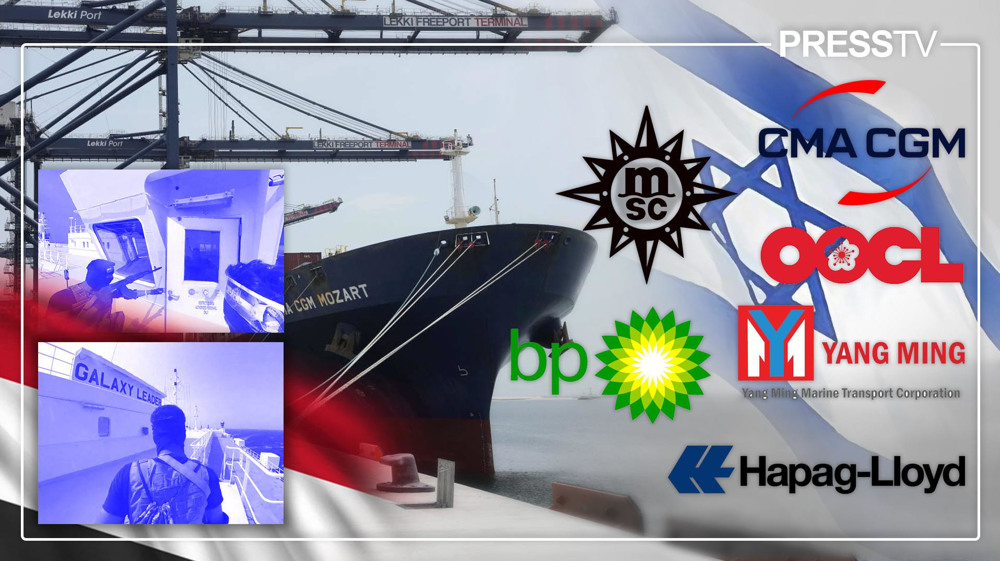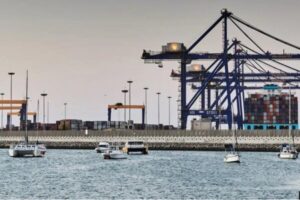By Humaira Ahad
Yemen has hogged headlines in recent weeks amid a spate of attacks on Israel-linked vessels in the Red Sea, vowing to continue its operations despite the formation of a maritime alliance.
Since the attacks began on vessels headed to the occupied territories, the world’s largest shipping companies have rerouted their vessels from the strategic waterway.
To deter the Yemeni military, the United States last week announced a ten-nation ‘Operation Prosperity Guardian alliance in the Red Sea. The countries that initially pledged support included the United Kingdom, Bahrain, Canada, France, Italy, Netherlands, Norway, Seychelles, Denmark, Spain and Greece.
However, the latest reports suggest that many of them have already withdrawn from the alliance, including France, Spain and Italy. Others are also weighing their options.
Yemen has vowed to continue attacks on vessels traveling to or from the occupied territories as long as the bloodshed in Gaza continues, saying operations will not cease even if the US mobilizes “the entire world”.
On Wednesday, Yemeni Ansarullah resistance group leader Seyyed Abdel-Malik al-Houthi warned that the Arab country would not hesitate to strike US warships if Washington violates its territorial integrity.
“We will not stand idly by if the Americans are tempted to escalate further and commit foolishness by targeting our country or waging war against it,” al-Houthi stressed.
“The US is seeking to militarize the Red Sea to safeguard the interests of the Zionist enemy. Washington’s measures in support of Zionists will endanger security and stability in the region.”
Earlier, Mohammed Abdul-Salam, the chief spokesman and negotiator for the Yemeni resistance said all ships belonging to the Israeli enemy or that deal with it will become “legitimate targets”, adding that Israelis only understand “the language of force.”
“The detention of the Israeli ship is a practical step that proves the seriousness of the Yemeni armed forces in waging the sea battle, regardless of its costs and costs,” he stated. “This is the beginning.”
The regime in Tel Aviv is already reeling under the impact of the disrupted maritime trade due to the blockade imposed by the Yemeni military.
Red Sea – the shipping route
More than 17,000 ships pass through the Red Sea each year, some heading to the Suez Canal that takes them to the Mediterranean Sea and acts as the link between Asia and the West.
The Bab el-Mandeb Strait between Djibouti and Yemen where the Yemeni military has been carrying out its operations against vessels linked to the Israeli regime marks the southern entrance to the Red Sea, which connects to the Suez Canal and is a crucial link between Europe and Asia.
According to rough estimates, around 12 to 15 percent of global trade is done through this route, representing 30 percent of global container traffic. Around 7 to 10 percent of the world’s oil and 8 percent of liquefied natural gas also get shipped through Bab el-Mandeb.
Historically, the Red Sea’s enormous importance in global maritime trade and its chokepoints have drawn the attention of many global figures from Alexander the Great to Napoleon.
Due to its high strategic importance, colonial powers such as Britain, France, and Italy over the years set up military bases in the key ports of the Red Sea, including Egypt, Eritrea, Djibouti, Somalia, and Yemen.
During the Cold War, the United States and the Soviet Union also jumped on the Red Sea bandwagon.
Bab el Mandeb Strait, which serves as the southern entrance to the Red Sea, is controlled by Yemen but attempts have been made by Western and regional countries to infringe on it in recent years.
Companies pausing ops in Red Sea
Amid the Yemeni attacks, many global shipping companies have stopped their sailings in the Red Sea, disrupting the global maritime trade and dealing a heavy blow to the Israeli regime’s economy.
Mediterranean Shipping Company (MSC), the world’s largest shipping group has diverted its ships from the area after its container MSC PALATIUM III, was attacked while transiting the Red Sea.
Denmark’s AP Moller-Maersk, the world’s second-biggest shipping firm which accounts for 15 percent of the global container freight market, described the situation as “alarming”, opting out of the route.
British oil giant British Petroleum (BP) has also paused all its shipments of oil through the Red Sea after its vessels were attacked by the Yemeni military.
The firm said the “deteriorating security situation” in the region does not allow them to carry on with their sailing operations in the Red Sea.
French CMA-CGM (Compagnie Maritime d’Affrètement and Compagnie Générale Maritime) has also stopped shipments through the strategic waterway.
Belgian oil tanker firm Euronav and Norway-based tanker group Frontline have taken a decision to avoid Red Sea routes, fearing attacks.
Norwegian shipping company Gram Car Carriers, which specializes in pure car truck carriers, is another company to restricts its vessels from passing through the Red Sea.
Another Norway-based shipping company, Inventor Chemical Tankers, confirmed that its vessel, the MT Swan Atlantic was targeted while traveling from France to Reunion Island in the Indian Ocean.
Hoegh Autoliners and Wallenius Wilhelmsen, also from Norway, and Ocean Network Express (ONE), a Japanese company, have also decided to avoid the Bab el-Mandeb Strait.
German container shipping line Hapag-Lloyd said it would reroute 25 ships by the end of the year to avoid the Suez Canal and the Red Sea.
Taiwan’s Evergreen Line and Yang Ming Marine Transport announced that any container ships on longer journeys between Asia and the Mediterranean, Europe or the east coast of the US would also be diverted around the Cape of Good Hope.
Impact on Israel’s economy
The Israeli regime, whose economy relies on seaborne trade, said in October it would provide compensation for ships damaged amid its genocidal war against Palestinians in the besieged Gaza Strip.
However, after a string of attacks on Israel-linked vessels passing through the Red Sea and major shipping firms diverting their vessels away from the region, the regime is increasingly staring at economic breakdown.
Container ships bound for occupied territories from the Far East will now need to take a 40 percent longer route around Africa and the Cape of Good Hope, increasing the shipping time of goods by two to four weeks and raising the costs per ship by up to US $1 million.
The cost of shipping goods to the Zionist entity by sea has risen in recent days as some container lines pull out while others impose new surcharges, adding to the entity’s supply chain pressures amid its war on Gaza.
The additional costs will make goods more expensive for importers and in turn for the consumers.
Even before Yemen started attacking Israel-linked ships, the vessels headed to the occupied territories faced higher freight costs, as they needed to pay an additional war risk premium levied by marine insurers.
For Israel, this is a major concern, as air freight is not an option, since 99 percent of goods are imported by the sea.
As per an analysis by global freight platform Freightos, ocean freight rates to Israel from various Chinese ports rose to over US $2,300 for a 40-foot container by Dec. 12, from around US $1,975 at the end of November.
According to maritime experts, 30 percent of Israeli imports come through the Red Sea on container vessels. These ships are booked two to three months in advance for consumers or other products.
The products with a shelf life of two to three months will not be worthwhile importing from the Far East with the extension in journey.
An Israeli newspaper report said importers “will need to increase stock due to the uncertainty and pay much more and others will lose out on their markets as time to market is not competitive.”
With a looming threat of shipping companies totally boycotting the Israeli market and Insurance companies not insuring the vessels passing through the Red Sea, experts say the regime’s already flailing economy will receive a lethal blow.
As per the regime officials, Israeli-controlled Eilat Port has already seen an 85 percent drop in activity since Yemen stepped up attacks on ships in the Red Sea.
Eilat, adjacent to Jordan’s coastal access point at Aqaba, offers Israel a gateway to the East without the need to navigate the Suez Canal.
Impact on the world economy
With about 12 percent of global trade and 10 percent of the maritime oil trade passing through the Red Sea, it is one of the most heavily used trade routes on the planet.
Yemeni officials have made it clear that the Red Sea pass is open for ships that are not going to the ports controlled by the regime, and they can easily pass through there.
However, European natural gas prices have increased by 7 percent after BP suspended its Red Sea shipments of liquefied natural gas.
The war risk premiums charged by insurance companies for shipping in the Red Sea have already jumped from around 0.07 percent of a ship’s value in early December to around 0.5 to 0.7 percent now.
With the exorbitant premiums, the cost of a single seven-day voyage will increase by tens of thousands of dollars impacting the prices globally.




